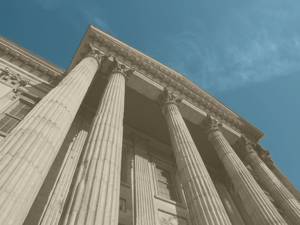 Loopholes in the Prior Law:
Loopholes in the Prior Law:
In 2007 the Maryland Legislature closed a loophole in the licensing statute. The original statute defined a debt collector as one “who engages directly or indirectly in the business of . . . collecting for, or soliciting from another, a consumer claim.” A debt collector in Maryland had to be licensed. A debt collector collects the debt of another. If you owed money to your doctor, the doctor did not have to be licensed to collect the bill. However, if the doctor turned the debt over to a collection agency, the collection agency had to be licensed as a debt collector.
Businesses started to purchase delinquent debt for discounted amounts, and collect the debt themselves. To accomplish this, businesses formed entities outside of Maryland. These entities were called a foreign statutory trust. Since the foreign statutory trusts were collecting their own debt, they were not required to be licensed in Maryland.
The legislature fixes the problem
The Maryland State Legislature closed the loophole in 2007. The 2007 amendment added the words “collecting a consumer claim the person owns, if the claim was in default when the person acquired it. . .” to the definition of debt collector
The Court of Special Appeals rules on the amendment
In June 2017, the Maryland Court of Special Appeals, in the case of Shanahan v. Marvastian, applied the 2007 amendment and held that a foreign statutory trust who purchased delinquent mortgage debt had to be licensed in Maryland as a debt collector in order to use Maryland Courts to collect the debts. The Shanahan Court built on prior case law which held that judgments obtained by unlicensed debt collectors were void. This was because an unlicensed debt collector could not invoke the jurisdiction of a Maryland Court.
The Maryland foreclosure bar (translation – the substitute trustees) went crazy, to say the least. If a homeowner was in the middle of a foreclosure case where the note owner bought the note while in default, and was not licensed in Maryland, the homeowner had strong grounds to get the case thrown out. The unlicensed debt collectors could not invoke the jurisdiction of the court.
The Court of Appeals Removes Protection for Maryland Homeowners
The lenders took the case to the Maryland Court of Appeals. In August 2018 the Court of Appeals reversed the Court of Special Appeals in Blackstone v. Sharma. I believe that Sharma is a pathetic attempt by an otherwise highly respected court to legislate from the bench by using twisted logic to save an industry. The Sharma Court reversed the Court of Special Appeals and held that the 2007 Amendment did not apply to the mortgage industry. How did the Court of Appeals accomplish this feat of magic? The Court of Appeals tried to reason that the phrase “collecting a consumer claim the person owns, if the claim was in default when the person acquired it” was ambiguous. That was exactly what the foreign statutory trusts did. They purchased mortgages where people had defaulted. However, the Court of Appeals told us not to believe our lying eyes or even use our brain. The 2007 Amendment did not mean what it said.
Two judges from the Court of Appeals filed a dissenting opinion:
The Majority labors over 64 pages to justify its conclusion that the statute does not mean what it says. Before detailing the problems with that analysis, it is worth noting that the Majority Opinion explicitly declines to endorse Petitioners’ argument that a foreclosure action is not collection of a debt under MCALA. . . .
Note how the dissent framed the issue:
The issue in this case is relatively simple. In 2007, the General Assembly amended the Maryland Collection Agency Licensing Act, known by the mellifluous acronym “MCALA,” to extend the licensing requirement of that law to a “person” — a term that includes entities — that collects consumer debt that the person owns as well as consumer debt owned by others. The obvious purpose, demonstrated both by the amendment’s language and by its legislative history, was to require those who buy, and attempt to collect, defaulted consumer debt to obtain the requisite license. The main question before us is whether the amended statute applies to those who buy, and attempt to collect, defaulted consumer mortgage debt.
The dissent framed the issue in one-hundred-thirteen words while the majority couldn’t reach a coherent explanation in sixty-five pages.
The Resulting Impact on Maryland Homeowners
The purpose of consumer protection laws is to protect the consumer from specific business practices. The Sharma line of cases involved companies that were established for the sole purpose of buying defaulted mortgages and foreclosing on the properties. These companies voluntarily chose not to obtain a Maryland license.
In 2018, Maryland ranked third among the fifty states in foreclosures. Baltimore City was the highest in the state for foreclosures. This will only get worse. Banks had been holding off filing foreclosures while they were waiting for the Sharma decision. Banks are now starting to foreclose.
The result will be a glut in the market with real estate values plummeting. Families who went through the Great Recession and have now recovered will lose their homes. Why? Because the Court of Appeals fudged the law and took away the consumers’ bargaining chip to negotiate a loan modification and save their home.
 Jerry on Law
Jerry on Law

